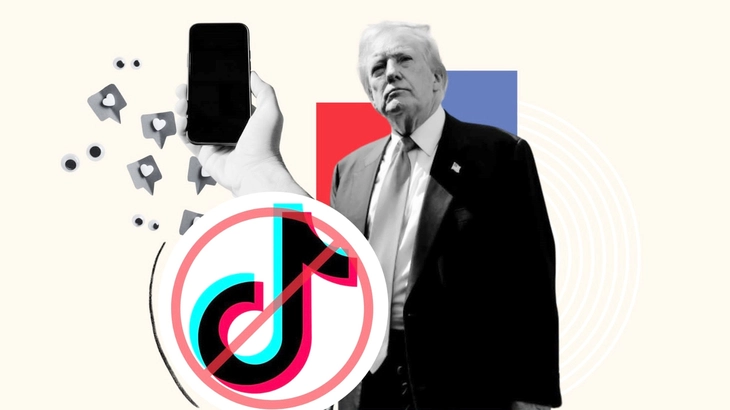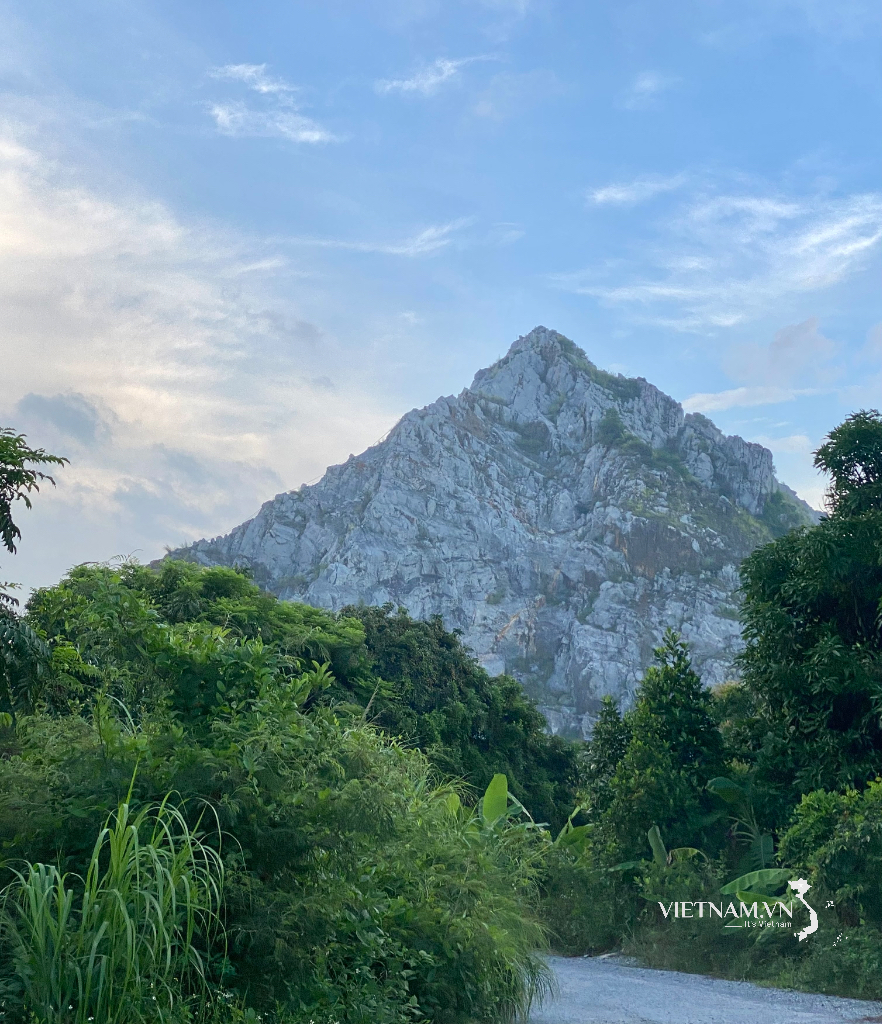
It is not impossible that Washington will use the TikTok deal as leverage when negotiating tariffs, trade, rare earths or semiconductors - Photo: Newsweek
The US government's announcement of a framework agreement on TikTok on September 16 opens up hope of an escape for the app in the US market.
It also signals a significant shift in the trade strategy between the two superpowers, the US and China. The agreement represents a more flexible approach, focusing on controlling data rather than destroying businesses outright.
Agreement reached after controversy
According to CNBC on September 16, President Trump has allowed ByteDance three more months to divest from TikTok's US business.
This is the fourth time Mr. Trump has extended the executive order, meaning the US Department of Justice will not enforce the national security law that would ban TikTok in the US until December 16.
US Treasury Secretary Scott Bessent revealed that the parties have reached a "framework agreement" on TikTok.
According to the Wall Street Journal on September 16, about 80% of TikTok's US business will be transferred from ByteDance to a consortium of investors including Oracle, Silver Lake and Andreessen Horowitz. The new consortium will be run by a board of directors with a majority of American members, including one member appointed by the Trump administration.
The dispute over TikTok in the US has lasted for nearly a year and reached the highest levels of both the US and China. On September 19, President Donald Trump and President Xi Jinping are expected to discuss the terms of the deal again.
The new deal, expected to close in the next 30 to 45 days, includes new investors, existing ByteDance investors, and Oracle continuing to provide cloud computing services to TikTok, according to CNBC.
The framework agreement agreed by US and Chinese negotiators in Madrid this week is not much different from the one presented to President Trump in April, CNN reported.
However, Mr. Trump's subsequent announcement of harsh tariffs on China further complicated negotiations between the two sides.
"Any details of the TikTok framework agreement are purely speculative unless announced by this administration," a senior White House official told CNN.
Oracle executive chairman Larry Ellison, who briefly became the world’s richest person last week with a fortune of $363 billion, is rumored to be in talks to buy TikTok in the U.S. Ellison is a Trump supporter and Oracle has been hosting TikTok’s U.S. data since 2020.
Change of confrontation strategy
If the above agreement becomes reality, it will show a shift in China-US relations from comprehensive confrontation to a more pragmatic, controlled competition model.
Unlike the threat of a complete ban in 2020, the 2025 deal represents a more flexible approach from both sides.
Instead of forcing ByteDance to sell TikTok outright, Washington accepted a structure in which the Chinese company still plays an important role, including controlling the algorithm that runs the app.
In return, the US's main goal is to control data and minimize national security risks through the US data storage company Oracle.
This approach helps the US ensure data security without causing a major political and economic crisis by banning an application with up to 170 million users.
At the same time, the US should avoid setting a precedent of blatant interference in foreign technology companies doing business in the US.
For China, they can breathe a sigh of relief by protecting their leading technology company from the worst-case scenario, not losing core intellectual property and still maintaining a significant presence in the world's most important market.
The move shows Beijing is willing to negotiate and make concessions on operating structures and ownership, as long as core technology is not affected.
The incident clearly shows that TikTok has gone beyond the limits of a mere company. It is not impossible that Washington will use the TikTok negotiations as leverage when negotiating tariffs, trade, rare earths or semiconductors.
The TikTok deal also signals the risk of private businesses being “weaponized” as foreign policy tools.
The new model, with its joint venture structure and strict regulations on data storage and processing in the US, could become a template for global tech companies and other countries.
Instead of outright bans, countries will require foreign companies to comply with local data regulations. The question will no longer be “to ban or not to ban,” but “who controls the data and algorithms.”
170 million
TikTok currently has 170 million users in the US, making a complete ban a decision with major socio-political implications. Under the framework agreement, 80% of TikTok's US business will be transferred to a new consortium of Oracle, Silver Lake and Andreessen Horowitz.
Source: https://tuoitre.vn/tiktok-thoat-hiem-tai-my-20250917235715039.htm



![[Photo] Ho Chi Minh City is brilliant with flags and flowers on the eve of the 1st Party Congress, term 2025-2030](https://vphoto.vietnam.vn/thumb/1200x675/vietnam/resource/IMAGE/2025/10/10/1760102923219_ndo_br_thiet-ke-chua-co-ten-43-png.webp)


![[Photo] "Exposing letters" in the flood center of Lang Son](https://vphoto.vietnam.vn/thumb/1200x675/vietnam/resource/IMAGE/2025/10/10/1760080117518_ndo_br_z7101324112737-07cd4d1c01801a8ccf4ae0cbaf31c4a3-507-jpg.webp)
![[Photo] Unique Phu Gia horse hat weaving craft](https://vphoto.vietnam.vn/thumb/1200x675/vietnam/resource/IMAGE/2025/10/10/1760084018320_ndo_br_01-jpg.webp)
































































































Comment (0)